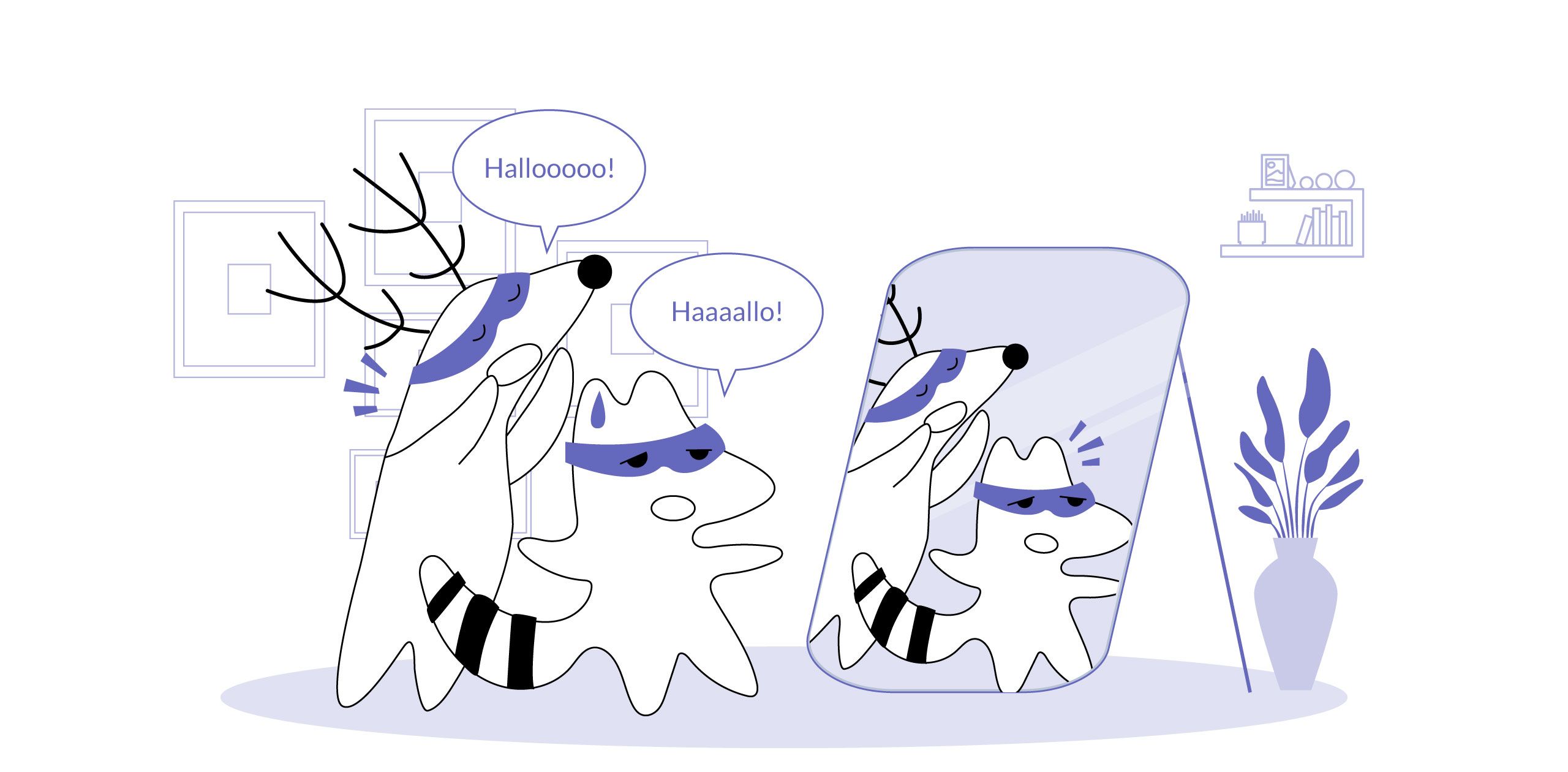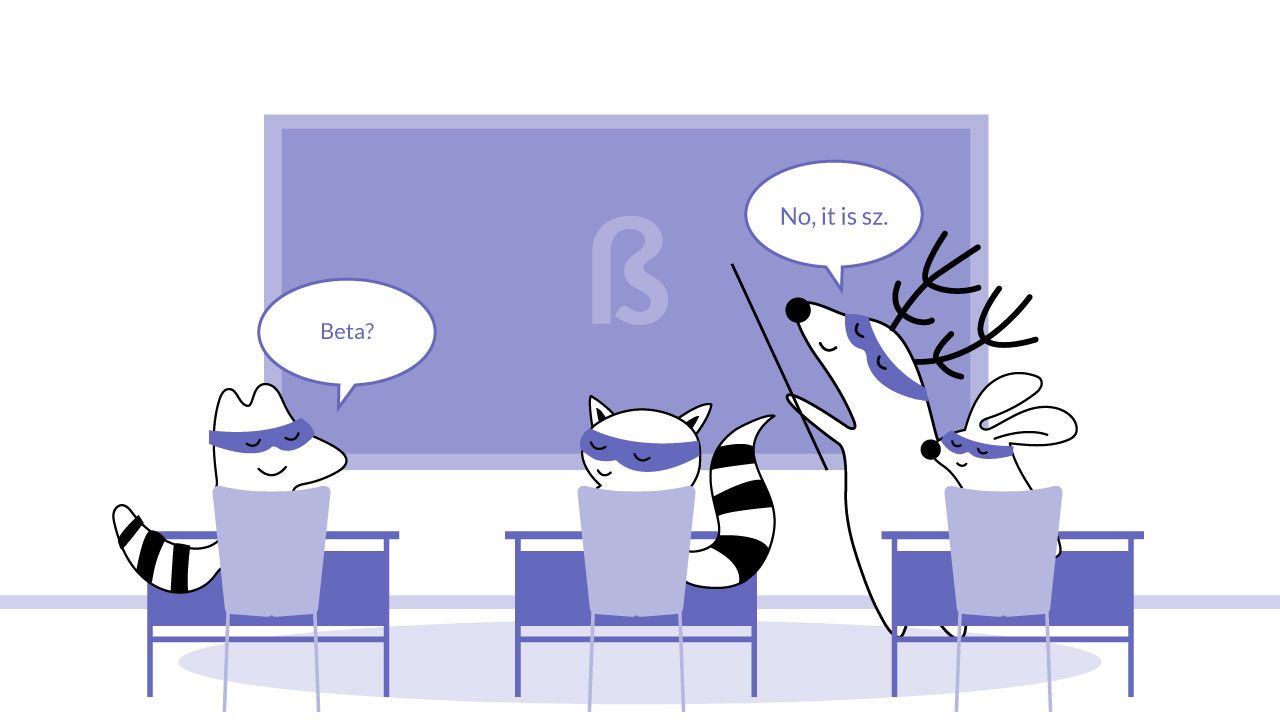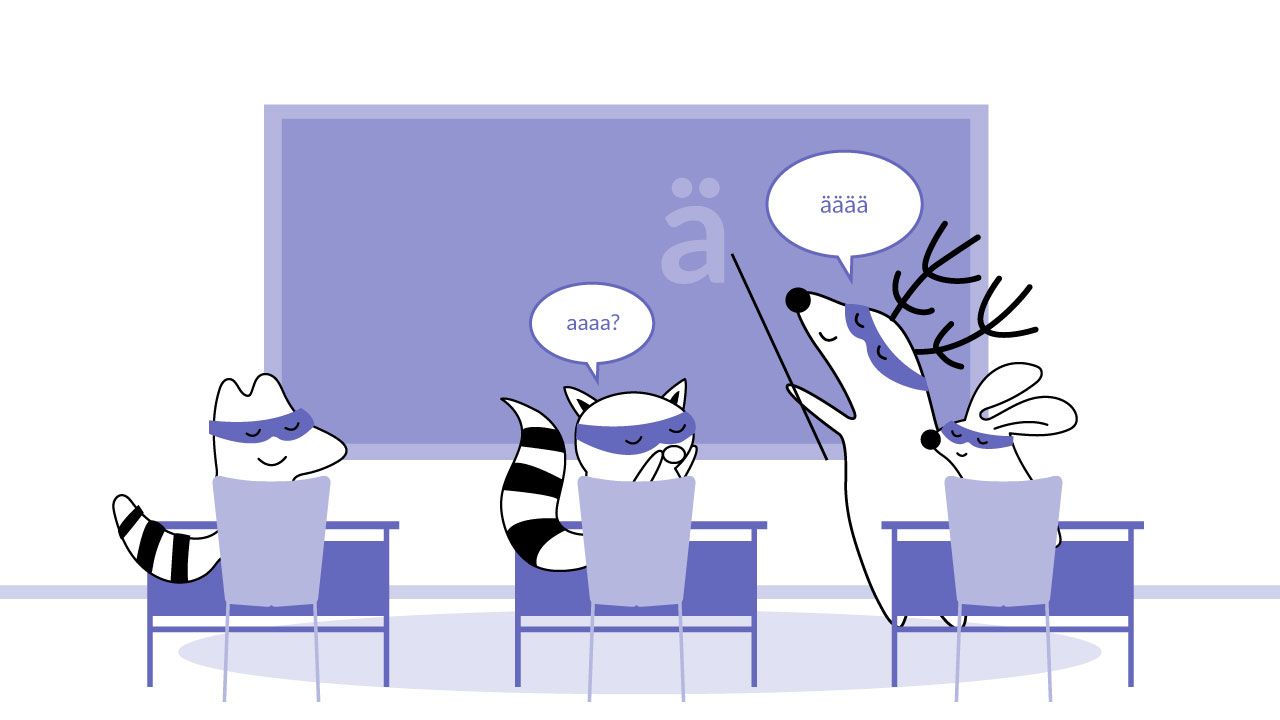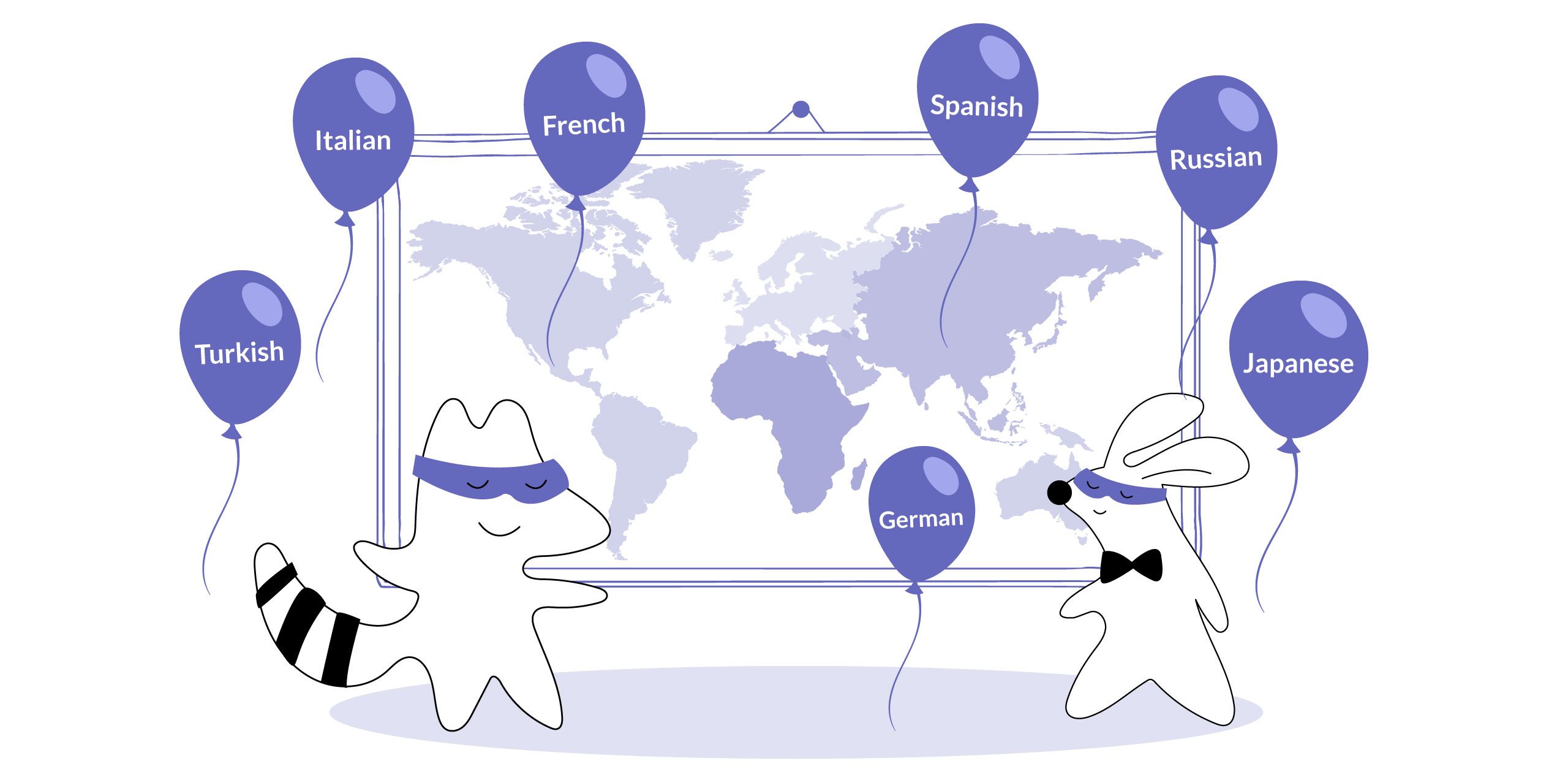
Most people agree that German is not the language that comes to mind when we’re thinking about the most beautiful sounding languages. Some people find German words to be harsh and complicated, which is usually due to the language's abundance of “zh” and “sh” consonant sounds, called sibilants.
Some German sibilants are difficult to pronounce for non-native speakers, and their combination in German words can make it even more difficult. Furthermore, the German language has some unusual sounds known as "Umlaute."
In this post, we'll go over the German letters and the fundamentals of German pronunciation. We'll cover the German alphabet and its sounds, as well as complex letter combinations in long German words and how to deal with them.
Speaking German will get easier the more you try to pronounce German words and listen to native German speakers. With practice, you will master German pronunciation and understand spoken German, even though at the moment it might seem like a big sound salad for you.
Learn German with Langster
The German Alphabet
First, you should overview the German letters before starting with their pronunciation. Like English, the German alphabet derives from the Latin alphabet, so both languages use the same letters.
Besides the following 26 letters that both alphabets share, the German language counts with four more letters - three particular sounds called "Umlaute" and one ligature ß, which is called "Eszett." "Eszett" is how a native German speaker would pronounce the letter combination sz.
| A |
| B |
| C |
| D |
| E |
| F |
| G |
| H |
| I |
| J |
| K |
| L |
| M |
| N |
| O |
| P |
| Q |
| R |
| S |
| T |
| U |
| V |
| W |
| X |
| Y |
| Z |
| Ä |
| Ö |
| Ü |
| ß |
| A |
| B |
| C |
| D |
| E |
| F |
| G |
| H |
| I |
| J |
| K |
| L |
| M |
| N |
| O |
| P |
| Q |
| R |
| S |
| T |
| U |
| V |
| W |
| X |
| Y |
| Z |
| Ä |
| Ö |
| Ü |
| ß |
There is a song for kids that can help you learn how to pronounce German letters. The music and rhymes make it easy to memorize the German sounds. So have a quick look here!

How to Pronounce the "Umlaute" and "ß?"
The "Umlaute" in German are ä, ö, ü and derive from the German vowels a, o, u. Their sounds are very different, though, and causes some difficulties for many German learners at the beginning.
There is a trick that helps you imagine how a native German speaker would pronounce the three exceptional vowels:
- For the ä, imagine saying a forming an e with your mouth
- For the ö, imagine saying o forming an e with your mouth
- For the ü, imagine saying u forming an i with your mouth
When it comes to writing in German, and your keyboard doesn’t come with the umlauted letter with the two dots, there are those accepted alternatives:
- For the ä, you can write "ae"
- For the ö, you can write "oe"
- For the ü, you can write "ue"
The ligature ß is basically like a very sharp s known as "sz" in German. The sound is the same thing as "ss," which is why it’s falling out of fashion in modern written German.

Do English and German Letters Have the Same Sound?
When you listen to the alphabet pronounced by a German speaker, you realize that English letters have a much softer sound than German, which makes certain letters sound entirely different.
On the other hand, there are letters in German that sound like different letters in English, which can cause confusion. An example is the German i, which sounds similar to the English e. Also, the English v sounds identical to the German w.
What About Grammar?
The letters themselves are all neuter in German, which means that you use the article "das" when you want to mention some letter specifically. For example, das A, or das B (the a or the b). When you talk about the alphabet in general, you can also call it das ABC (the ABCs).
When you see written German, you will notice that, differently from other languages with the Latin alphabet, in German sentences, you use a lot of capitalization. Besides the beginning of a sentence, the first letter of every German noun also has to be capitalized.
Look at the following sentence:
German
English
Wir lernen das deutsche Alphabet.
We learn the German alphabet.
The word "alphabet" is the object of the sentence and a noun, which you can recognize by its article, and so in German it needs to be capitalized.
The Hardest Letters of German Pronunciation for Foreigners
Besides the Umlaute, a few more letters cause problems for German learners. A few examples are the German r, z, x, or w. Especially one letter, the "r," makes it difficult because it is part of many German words.
The German r sounds like the French r; it is created deep inside the throat. As you pronounce it differently than the English r, many English speakers have difficulties with it in the beginning.

The more you listen to German in real life or through authentic videos, the better you will learn to distinguish those two sounds. Here is an example for two similar written words:
German
English
drei
three
vs.
German
English
trocken
dry
There is also the “ch” sound which complicates the pronunciation for many German learners. The combination ch can, in some words, be pronounced like a smooth version of sch and, in other words, like a hard and scratchy sound [x], which in other languages might sound like an x or a j.
The following two words should clear up the difference:
German
English
sprechen
speak
vs.
German
English
Sprache
language
German Pronunciation Guide
Now that we have gone over the German alphabet, we can deal with a word's sound in German. German has many long words, but in most cases, a long German word is made up of smaller words. As a result, if you know how to pronounce the individual common German words, you can easily handle the combination of several.
We show you how Germans compound words, look at the following example:
Liebesbriefschreiber > Liebe (love) / Brief (letter) / Schreiber (writer) = somebody that writes love letters
German
English
Liebesbriefschreiber
Love letter writer
Liebe, Brief, Schreiber
Love, letter, writer
You see that the long word is just the sum of several words that are short and that seem easier to pronounce. So, if you know how to pronounce the short words well, the long one shouldn’t be a problem.

Difficult German Letter Combinations
Germans compound words tend to have compound consonants, which can make the pronunciation of a German word hard for beginners. Nevertheless, most combinations are common, and learning the combined consonant sounds helps you pronounce the whole word correctly.
Most combinations count with three or four consonants, which might seem impossible in your native language. You will see many words that have str, spr, or sch. Some words build a record with almost seven consonants in a row. For example:
German
English
Angstschweiss
Cold sweat
Instead of pronouncing each letter individually, listen to how a German native sounds like pronouncing the word and copy the sound of the letter combination.
Listening Comprehension Training Can Be Fun
In general, it is essential to listen to the foreign language you want to learn as much as you can. You have to know how a native speaker sounds and memorize the sounds they make.
There are applications like the Langster App, where German native speakers read stories in German out loud, and you can listen and repeat the sound. Listening to music or your favorite series in German can also help a lot in that case.
Where to Go in Germany to Learn
The pronunciation of German can vary a lot depending on where you are in Germany. You will meet native speakers who pronounce words in a different German accent and you might struggle at first to understand them when they speak German.
The German sound can be very different in Cologne than in Bavaria, for example, as the regions have different pronunciation rules. Look at the following example:
central Germany: Grüß dich (greet you)
south Germany: Grüß di (greet you)
The phrase has the same meaning but sounds quite different. Especially the sound r makes the word "grüß" sound differently, as it is not produced in the throat but with the tongue. In Bavaria, they use the different r-sound in every word with r.
When learning German pronunciation, it might be easier to speak German with people from the center of Germany, where the accent should be the clearest and free of dialect. However, when you meet people with a robust German dialect, try to be patient and concentrate. It will help you improve your listening comprehension skills.
Final Thoughts
The most important thing to learn about German pronunciation is listening a lot to German native speakers. To practice, try to imitate first the sound of a letter, later a word, and finally a sentence in German.
With time, you will get used to how Germans sound and soon will be able to pronounce even the longest words in German. Remember that you can learn German with fun applications like the Langster app. With fun, you learn faster!








